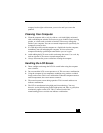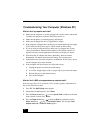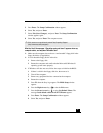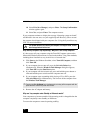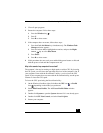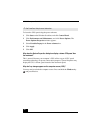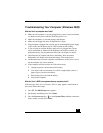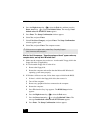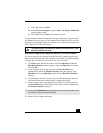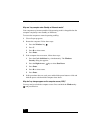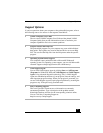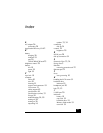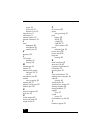
Troubleshooting Your Computer (Windows 2000)
59
Troubleshooting Your Computer (Windows 2000)
What do I do if my computer won’t start?
❑ Make sure the computer is securely plugged into a power source and turned
on. Make sure the power indicator shows the power is on.
❑ Make sure the battery is inserted properly and charged.
❑ Make sure the floppy disk drive (if applicable) is empty.
❑ If the computer is plugged into a power strip or uninterruptible power supply
(UPS), make sure the power strip or UPS is turned on and working.
❑ If you are using an external display, make sure it is plugged into a power
source and turned on. Make sure the brightness and contrast controls are
adjusted correctly. See the guide that came with your display for details.
❑ Disconnect the AC adapter and remove the battery. Wait one minute.
Reattach the AC adapter and reinsert the battery. Turn on the power.
❑ Condensation may cause the computer to malfunction. If this occurs, do not
use the computer for at least one hour.
❑ If the computer still does not turn on, follow these steps:
1 Unplug the power cord and remove the battery.
2 (For models with a reset button) Use a thin, straight object (such as a
paper clip) to press the reset button.
3 Reinsert the power cord and the battery.
4 Turn on the computer.
What do I do if a BIOS error appears when my computer starts?
If the message “Press <F1> to resume, <F2> to setup” appears at the bottom of
the screen, follow these steps:
1 Press F2. The BIOS Setup menu appears.
2 Set the date (month/day/year). Press Enter.
3 Press the Down Arrow key to select System Time, and then set the time
(hour: minute: second). Press Enter.



